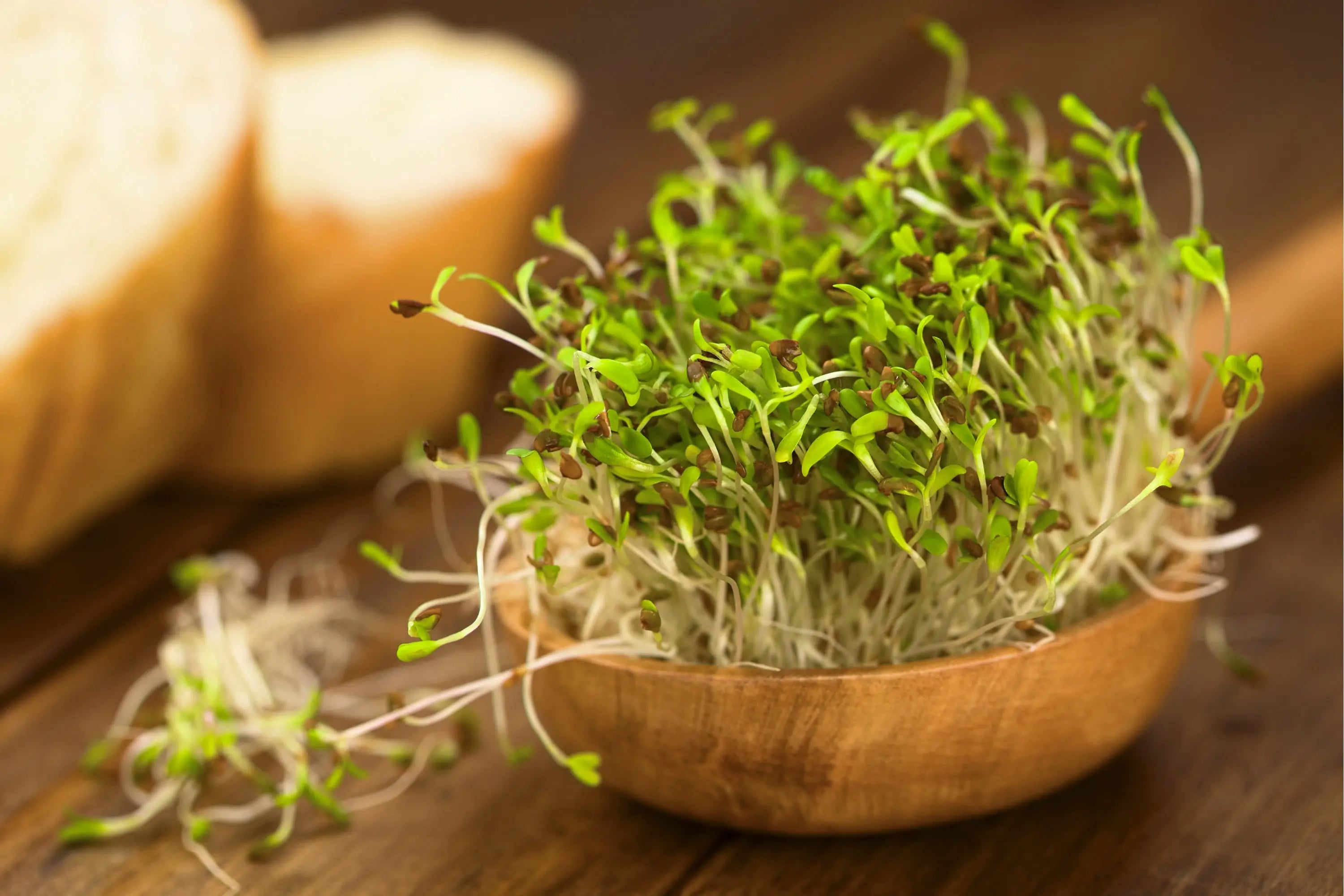Alfalfa is a plant with interesting nutritional value and is currently used in herbal medicine and in cooking. Still too little known, alfalfa is nevertheless a real remedy which, unlike other plants, does not grow on the other side of the planet. It might surprise you! If you haven't tested it yet, or if you're wondering what it can be used for, read on carefully because its benefits are fabulous!
Properties and Benefits of Alfalfa
Alfalfa is a small plant with great nutritional and medicinal properties. Alfalfa is known for its vitalizing, remineralizing, anti-inflammatory properties, and other virtues listed below.
Alfalfa Boosts Energy and Immune System
Today, the manufacturers of alfalfa supplements (aerial parts) praise its anti-fatigue properties linked to its richness in proteins, vitamins and minerals (calcium, in particular), as well as its anti-cholesterol and diuretic effects. Due to these properties, it has the following benefits:
- Revitalizing
- Fights against fatigue; in homeopathic form, it is one of the ingredients of liquid supplements with supposed anti-fatigue properties.
- Anti-stress effect
- Helps against anemia
- Anti-hemorrhagic action (thanks to vitamin K)
Strengthens Bones
- It strengthens bones due to its remineralizing properties and is rich in calcium, vitamin D and protein.
- Fights against osteoporosis
- Its a growth aid
- It strengthens hair and nails.
Alleviates Symptoms of Menopause
As suggested in a recent study, alfalfa is rich in phytoestrogens, substances found in plants that are said to have an activity similar to that of estrogen. Since alfalfa appears to contain phytoestrogens, its extract helps alleviate hot flashes and other symptoms of menopause.
Lowers Cholesterol and Triglyceride Levels
- It reduces LDL levels, hence cholesterol
- It reduces triglycerides, therefore reduction of atherosclerosis (deposits of lipids, cholesterol in the arteries, aging of the arteries by hardening, thickening of the artery walls, etc.)
- There is a possible influence on diabetes, insulin-like effect, but it is still under study.
Anti-Aging
- Its antioxidant properties protect our cells from aging.
- Fight against free radicals.
Fight Against Digestive Disorders
- Fights stomach ulcers
- Activates the appetite
- Fight against the fungi proliferating in the mucous membranes and more often in the intestine
Composition of Alfalfa
All the properties and benefits of Alfalfa lie in its seeds and leaves. They contain active components, such as saponosides that inhibit the absorption of cholesterol, coumestrol that plays a role similar to estrogen, and phytosterols.
Alfalfa is rich in proteins, amino acids and vitamins A, B, D, E, C and K. It is a source of minerals: calcium, sodium, magnesium, potassium and zinc. It then provides almost all of the elements necessary for the proper functioning of our body. It is an excellent source of vitamin C which contributes to our daily needs. Thanks to their enzymatic richness and their plant fiber content, they also help digestive disorders. Its iron content has an action on anemia.
How to Consume It?
The young leaves can be eaten in cooking. They will give a crunchy and aromatic side to your dishes. Sprouted seeds are eaten raw, in salads, in sandwiches, with avocado, or other vegetables, etc. The best way to consume it daily is in the form of supplements, both tincture or capsules.






Share:
Learn the Herbs: Eucalyptus
Algae-Benefits for Humans and Role in Nature